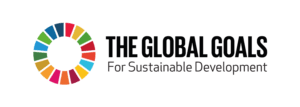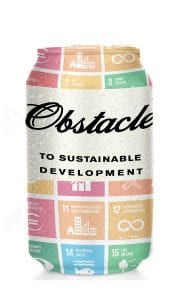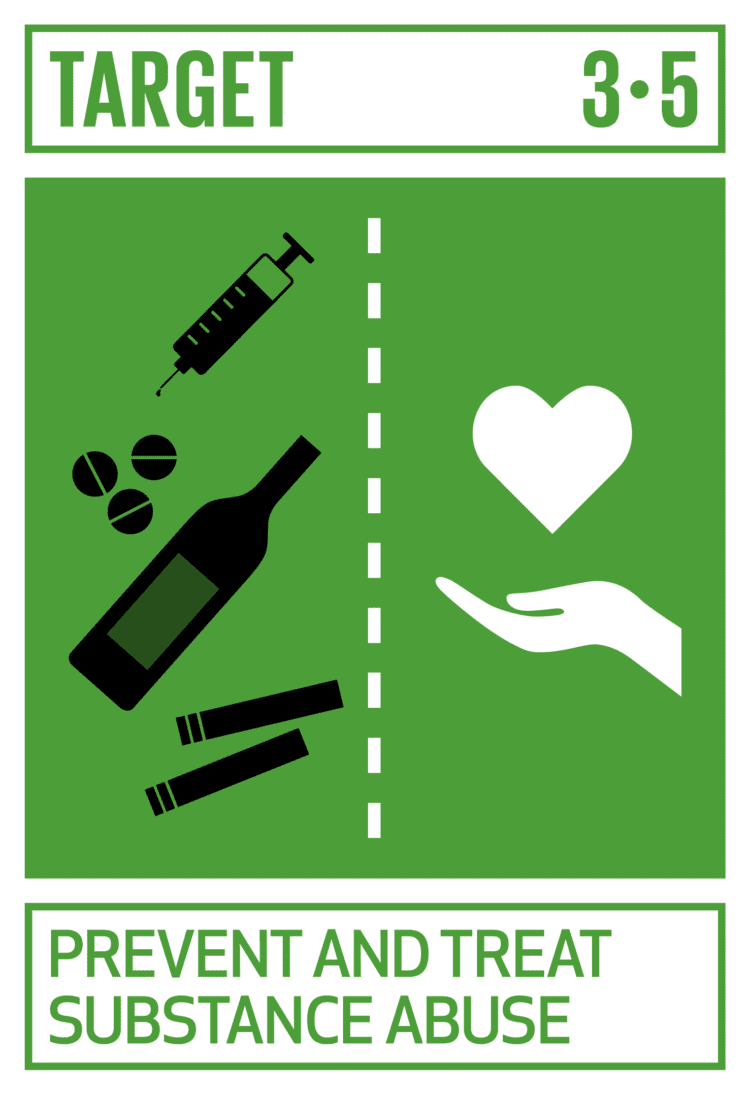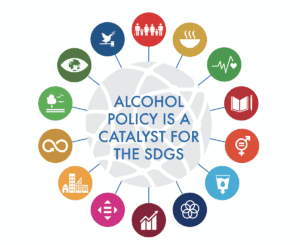 New Resource: How Alcohol Affects The SDGs
New Resource: How Alcohol Affects The SDGs
Movendi International has released an upgraded and revised resource to present state-of-the-art evidence about how alcohol affects sustainable development.
The brand new book(let) illustrates for the first time that alcohol adversely affects 14 Sustainable Development Goals (SDGs) and presents extensive scientific prove that all dimensions of the 2030 Agenda are impacted by alcohol as obstacle to development.
ALCOHOL OBSTACLE TO DEVELOPMENT
How Alcohol Affects the Sustainable Development Goals
Alcohol is an obstacle to achieving 14 out of 17 SDGs and at least 54 of 169 targets. It is a major obstacle to sustainable human development.
Based on the upgraded book(let), a special page on the Movendi International website provides an innovative overview of alcohol’s adverse effects across the Agenda 2030 – on human capital development, economic development, environmental development, social development, as well as development for women and girls.
Key messages
- Alcohol is an obstacle to development by jeopardizing human capital. In fact, alcohol is a m
 ajor risk factor for lost human potential throughout the life course.
ajor risk factor for lost human potential throughout the life course. - Alcohol’s social damage, its harm to the people’s health and well-being, and to public and global health, alcohol’s costs on the criminal justice system, all create a heavy burden on the economy of any society. Alcohol costs any society more than the alcohol trade adds to the respective economy.
- Alcohol’s health, social, and economic harms are well known. But alcohol’s adverse effects on the environment, biodiversity, water and food resources and the climate are less well known. Nevertheless, they are real, severe and growing.
- Exclusion, deprivation, inequality, exploitation: Alcohol’s massive social harm. Alcohol harm is a Human Rights issue. The harms to health are only part of the total alcohol-related damage. It is especially a Women’s Rights, Child Rights and Indigenous People’s rights issue.
- Societal norms, gender-based violence and sexual reproductive health and rights are major components of achieving full gender equality and complete empowerment of women and girls. Alcohol is a key driver of harmful societal norms; a major risk factor for violence against women and girls; and a substantial hinder to sexual reproductive health and rights for women and girls.
- The alcohol industry is a vector of poverty, disease, and social, environmental and economic harm. Alcohol is no ordinary product and Big Alcohol is no ordinary industry. The concentration of market power in the alcohol industry means an acceleration of the industrial epidemic that is alcohol harm – clearly threatening to sustainable human development.
Upgraded content, compelling new aspects
With the help of state-of-the-art evidence, the new, revised and upgraded book(let) shows for each of the 14 SDGs and 54 targets how alcohol affects them.
 For the first time, compelling evidence is presented about alcohol’s adverse effects in all three dimensions of sustainable development, including the environmental dimension.
For the first time, compelling evidence is presented about alcohol’s adverse effects in all three dimensions of sustainable development, including the environmental dimension.
The new book(let) also extends the analysis of alcohol’s – and the alcohol industry’s – negative effects on specific aspects of SDGs, such as child rights, the functioning of democratic institutions, equality, and sexual reproductive health and rights.
The revised book(let) also provides new evidence about the role of the alcohol industry as commercial obstacle to development, its fundamental conflict of interest in the context of the SDGs and how Big Alcohol business practices are hindering progress towards multiple SDGs, including poverty eradication, economic productivity, water security and the proper functioning of institutions.
In another new component of the upgraded book(let), Movendi International presents latest evidence about the potential of alcohol policy to function as catalyst for reaching the SDGs.
Basic facts: Alcohol obstacle to development
 Alcohol is a major obstacle to sustainable human development, adversely affecting 14 of 17 SDGs, all three dimensions of development and reaching into all aspects of society;
Alcohol is a major obstacle to sustainable human development, adversely affecting 14 of 17 SDGs, all three dimensions of development and reaching into all aspects of society;- Alcohol is jeopardizing human capital, undermining economic productivity, destroying the social fabric and burdening health systems;
- Alcohol kills 3 million people worldwide every year;
- That means: Every 10 seconds a human being dies because of alcohol;
- Worldwide, alcohol is responsible for 7.2% of all premature mortality.
- Alcohol harms young people disproportionately. Among people between the ages of 15 and 49, alcohol is in fact the number one risk factor for death and disability, accounting for 10% of all deaths in this age group.
